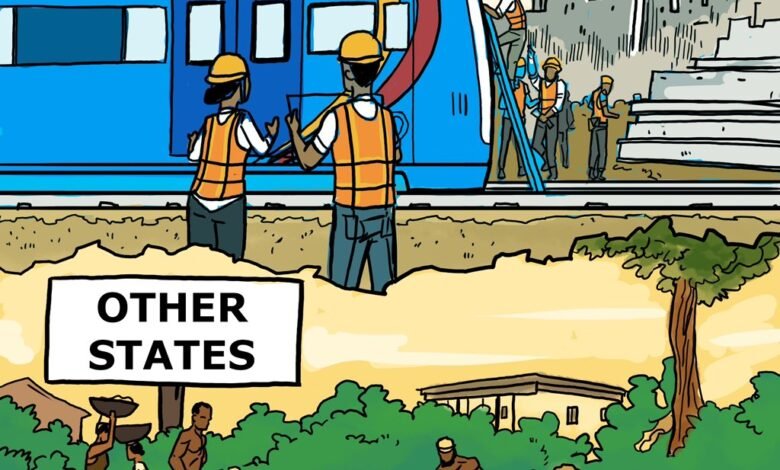
In Nigeria, when it comes to governance and development, there is Lagos, and then there’s the rest. The commercial city has surged ahead, leaving other states in the shadows. While Lagos boasts mega projects such as intra-state railroads, others struggle to lay the foundation for basic road construction, sometimes celebrating the installation of traffic lights.
Various attempts have been made to explain the sharp contrast between the fortunes of Lagos and the rest of Nigeria. Some attribute it to its former status as the country’s capital, making it the administrative hub and the preferred destination for business headquarters. Others point to its geographical advantage, enjoying coastal status that positions it as the trade port for the rest of the country. These factors, combined, result in significantly higher revenue generation than other states, which it uses to finance the extensive infrastructure that sets it apart.
However, this explanation falls short when considering that the observed gap, which widened with the commissioning of the Lagos Red and Blue rail lines, isn’t solely a reflection of differences in earning power. Take Delta State in the South-South region, for instance. In 2023, it claimed a total federal allocation of N483.57 billion, the highest among all states in the country. Yet, a recent state ranking positioned Delta as the least developed in the South-South region. The report reveals that Delta scored poorly in various development indicators, including road networks, industrialization, youth employment, and economic growth, making it the worst-performing state in the region.
If revenue were the sole determinant, Delta should be inaugurating its own state-funded rail line and boasting significant development outcomes. But this is not the case, suggesting that Lagos’s success cannot be solely attributed to its commercial prowess. In fact, as some analysts argue, its sustained commercial success over decades stems from factors that other states lack. One such crucial factor is continuity in governance. Since 1999, the state has been governed by the same party, with governors broadly aligned on a ‘growth masterplan.’ Critics have called for transparency regarding this masterplan, but what is evident is that each governor has maintained continuity, ensuring that the landmark successes of their predecessors are not lost.
This continuity is a rarity in Nigeria’s volatile political landscape. In other states, where inter-party transitions in governance have not resulted in the cessation of beneficial projects and infrastructure, political dominance battles between successive governors and their predecessors have led to distractions and actions that hinder progress and deter investors and development partners. Understanding Lagos’s success is vital for improving governance quality across the country. If the model can be defined and standardized, it could be replicated, benefiting the entire country by stemming the flow of internal migration to Lagos, which currently drains talent and capital away from other states. Lagos is leading the race; others must be supported to lace up their boots, step onto the track, and try to catch up.





